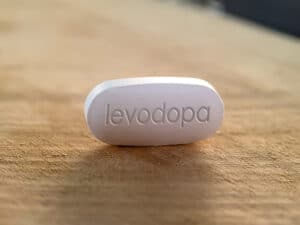Study Analyzes Effects of Levodopa on early Parkinson’s Speech Symptoms
A recently conducted study analyzed the effects of levodopa, a drug used to treat symptoms of Parkinson’s disease. McKnight’s reports the study found that levodopa does not have an effect on speech in early stage disease.
About 90 percent of diagnosed patients experience hypokinetic dysarthria which constitutes monotone or emotionless speech patterns. Earlier studies could not determine whether levodopa was tied to these pattern changes in Parkinson’s patients.

